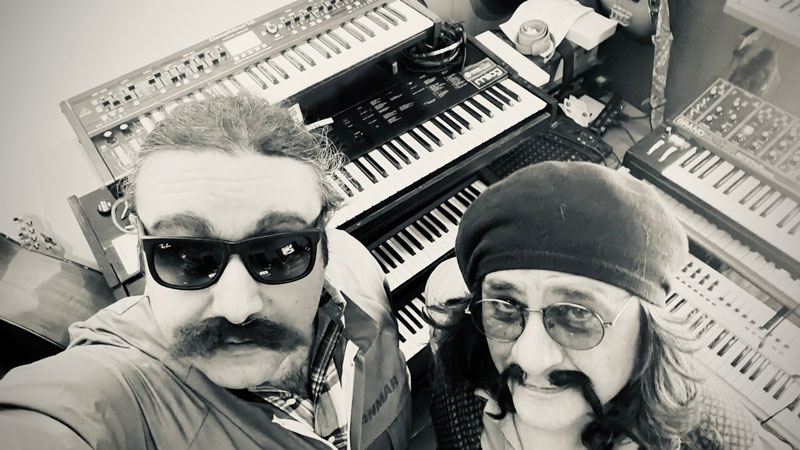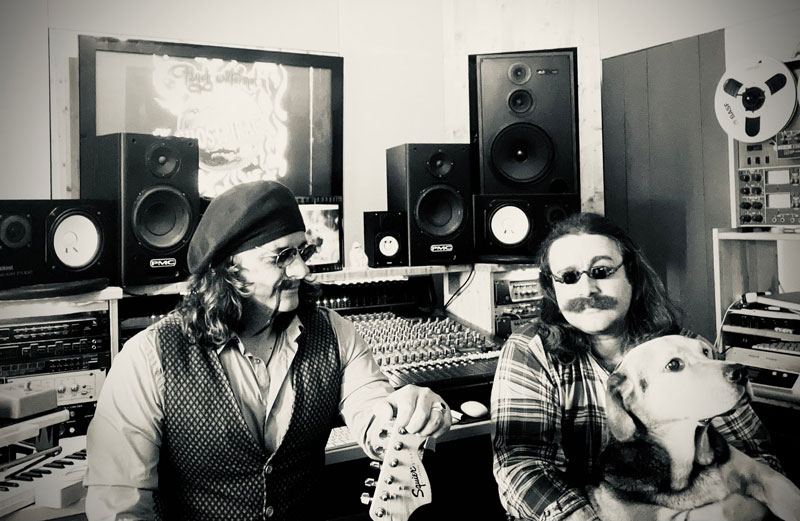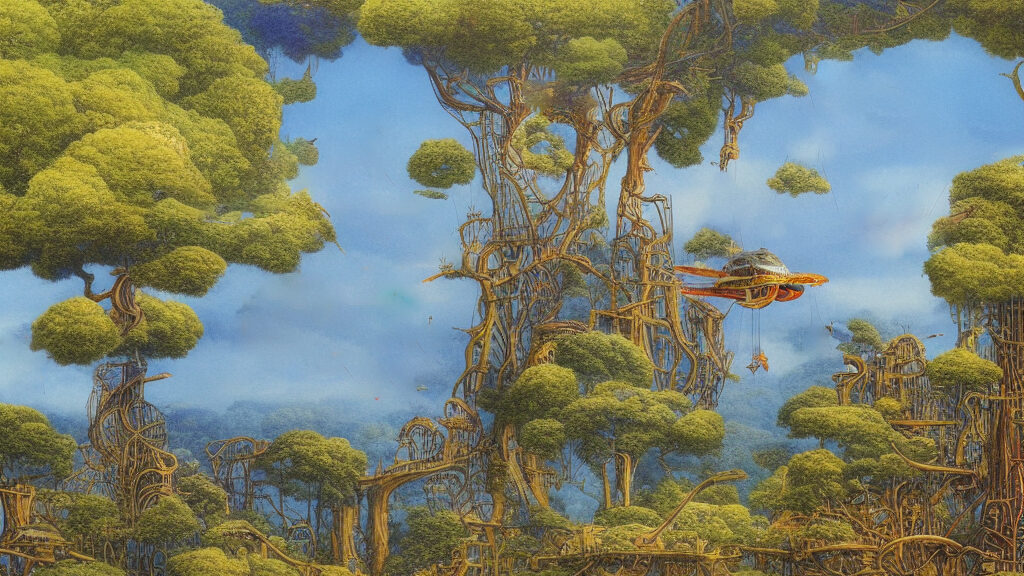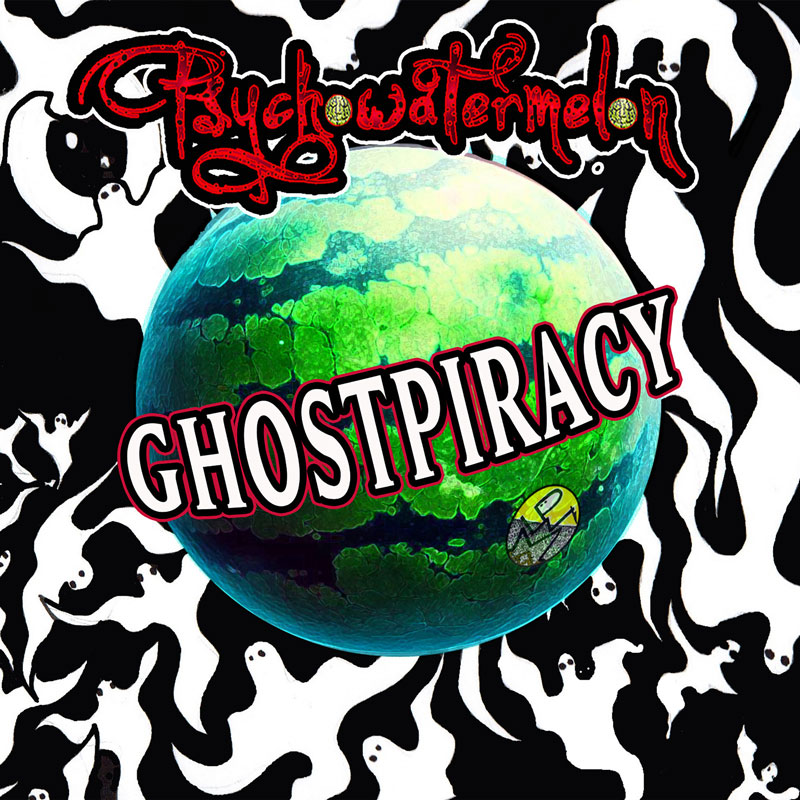Psychowatermelon – Ghostpiracy (self-release, 2024)
What happens when two of Italy’s most eclectic sound alchemists disappear into the studio with nothing but vintage gear, freeform instincts, and a shared obsession with the weird and wonderful edges of rock history? The answer is Ghostpiracy, a mesmerizing, labyrinthine album that signifies the official debut of Psychowatermelon, the shape-shifting duo of Alex Savelli and Tommaso Michienzi.

This is not their first cosmic rodeo. Savelli, known for everything from the jazz-fusion grooves of Massimo Manzi, to the art-rock experiments of NoStress, to the glam-funk excursions of Italian Kidd, has never settled into a single genre or generation. Michienzi, his long-lost musical twin, first crossed paths with Savelli back in 2005 during the improvisational sessions that birthed Ultima cena tra le nuvole, a Pasolini-inspired soundtrack created with Pelican Milk and Ares Tavolazzi. That early spark, fueled by a love for krautrock, psychedelic cinema, vintage electronics, and the absurd, never faded. If anything, it simmered underground, growing stranger and stronger.
Fast-forward nearly two decades, and that slow-burning chemistry explodes into Ghostpiracy, a wild ride through acid-soaked guitars, space-age synths, and meditative noise. Recorded with no roadmap, no radio hooks, and no fear of getting lost, the album sounds like it was discovered in a crater on Saturn’s moon and wired back to Earth on a damaged analog signal. Yet amid the swirling chaos lies surprising coherence: melodies and beats emerge, vanish, and reappear like memories in a dream.
Savelli brings the human touch, guitars that sigh and seethe, voices that whisper and wail. Michienzi conjures sounds from another dimension: theremins, tape loops, modular synths, digital ghosts. Their studio setup becomes an instrument in itself, a sort of haunted laboratory where songs grow organically from fragments and experiments. One of their secret weapons is Andrea Lamb D’Aniello, a drummer invited not to follow a click track but to sculpt rhythm from minimalist loops, creating his own emotional arc. His improvised takes became the spine of many tracks, which Savelli and Michienzi then built around, often discarding their original blueprints.

Another spectral presence drifts in on “Aliens on Piano,” where guest vocalist Luca Fattori channels an extraterrestrial soul discovering a lost baby grand in deep space. His wordless performance, part performance art and part telepathic chant, is as playful as it is profound.
Though Ghostpiracy is largely instrumental, the titles carry weight. Each was carefully debated, shaped by the album’s ghostly themes, disappearance, memory, reinvention, and the echo of things once loud and living. What ties everything together is a fierce commitment to freedom: not just the freedom to improvise, but to unlearn, to disobey, to imagine a music unburdened by genre or expectation.
This is music that honors the anarchic spirit of early Pink Floyd, the trance of Ash Ra Tempel, the sci-fi and horror grandeur of Goblin, and the ragged beauty of Italian library music.
Buy Ghostpiracy.

